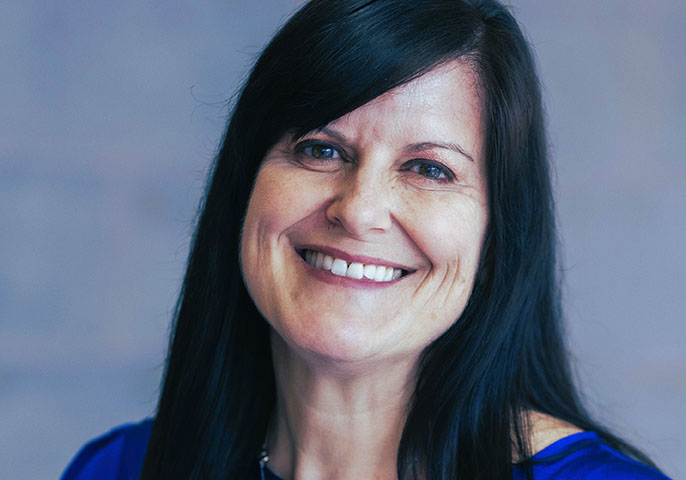Associate Director, Honors College
Discovering First-Gen Identity and Navigating College
I honestly did not know I was a "first-gen" student until maybe five years ago. I attended university largely because my peer group was college-bound. I can sadly and truthfully report that if my high school friends had been less focused or headed down more negative paths, I would probably have followed. I didn't know the difference between a CSU and a UC school and only applied to the university that my high school fed into. I was afraid to look at community college because I had heard false information that people attended for several years, only to drop out and have nothing to show for their time.
Struggling with the Transition to College
So, I entered university completely overwhelmed and not taking advantage of whatever student support might have been available. I had no idea what to major in, and after posting low grades from the first semester, my major choices were limited. I could see that my friends with parents who had attended college definitely had an easier transition. I focused more on my social life and less on doing well academically. Anyone looking at my high school senior report card and my grades after the first semester in college would be able to see that something was definitely not going well. I just didn't know how to ask for help.
Resilience and Perseverance
After a few years away from school, I returned to get my teaching credentials and then started a master's program at CSU Dominguez Hills. I was terrified of my statistics course, so I found a study partner and met frequently with the instructor. After nine years of being out of school, I earned an M.A. Then 25 years after finishing my bachelor's degree, I defended my dissertation and earned my Ed.D. It's no accident that my dissertation topic was "resilience" since I went back to earn a doctorate as a single mother, working full time, and caring for two aging parents. It was challenging and expensive, and I needed a village to rally around me and my little family, but where there was a will, there was a way.
Advice to First-Gen Students
Over time, I figured out how to navigate course registration, but I am certain my grades would have been better had I sought out on-campus tutoring or peer mentoring. I adapted well socially but I know in my heart that my educational experiences/preparation for a career and life after graduation would have been enhanced if I cultivated more agency in my destiny by ASKING FOR HELP.
I am learning more now about how to find out all that a university can offer as an employee than I ever did when I was a student. If I could go back in time, I would pay more attention to the following: attend office hours with faculty, visit the Career Center to take advantage of their services, probably attend some kind of coaching or therapy through the health/psychological center, attend on-campus tutoring, and probably try to learn how to apply for additional scholarships. The resources are there and while I think we do a great job of trying to proactively attract students to our support, I also know firsthand how the "shame spiral" or imposter syndrome can take over and leave us overwhelmed and feeling like a failure. Now I tell students the saying, "Nothing ventured, nothing gained" and the worst someone can tell you is "no". Hands down, it's the student who asks for the support to build agency in their own path that gets the needed support.
Please do not let your own thoughts and perceptions get in your own way. You deserve nothing but good things and people genuinely want to help! You deserve to be here and we are so glad you chose Cal State LA!
